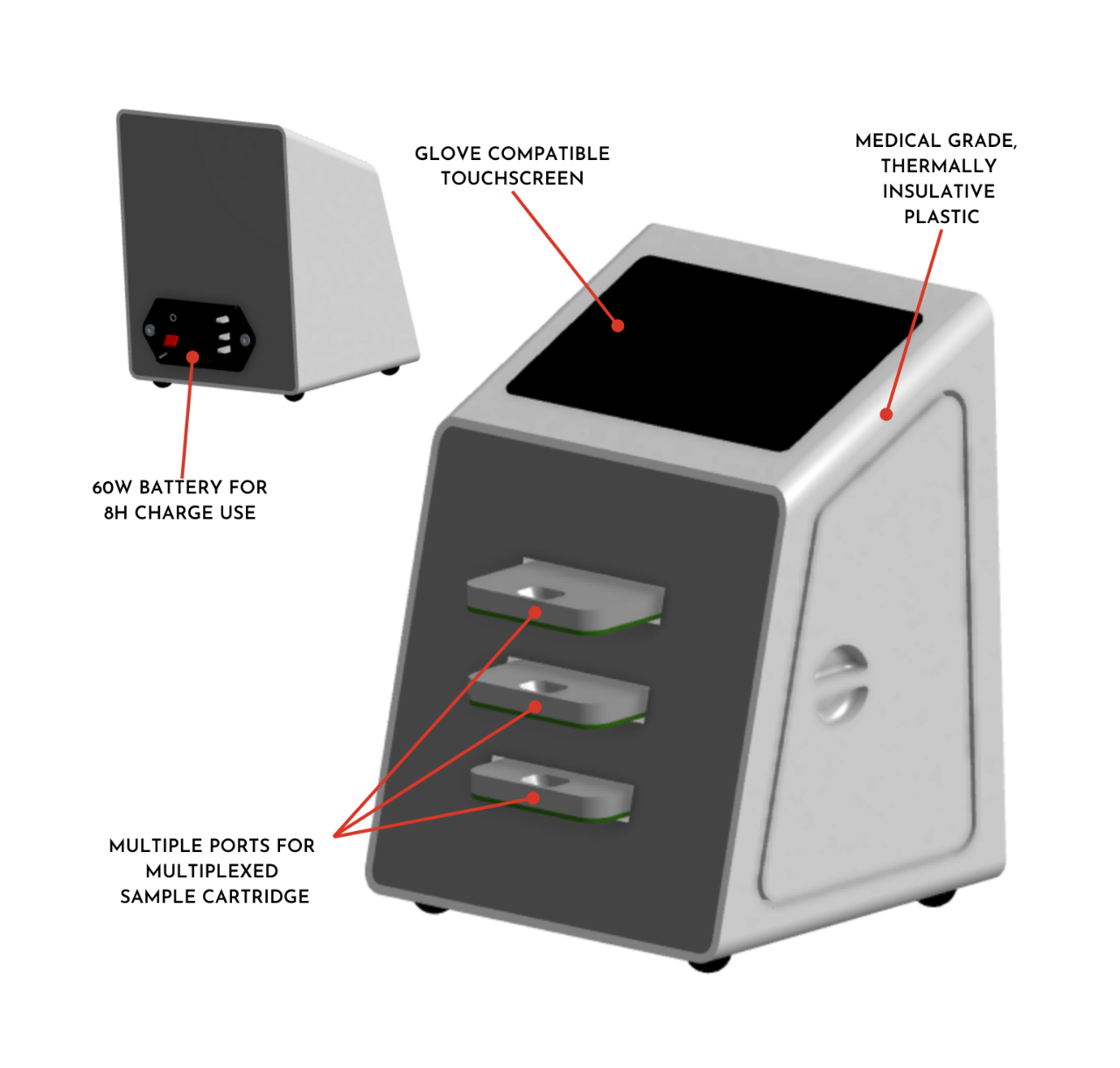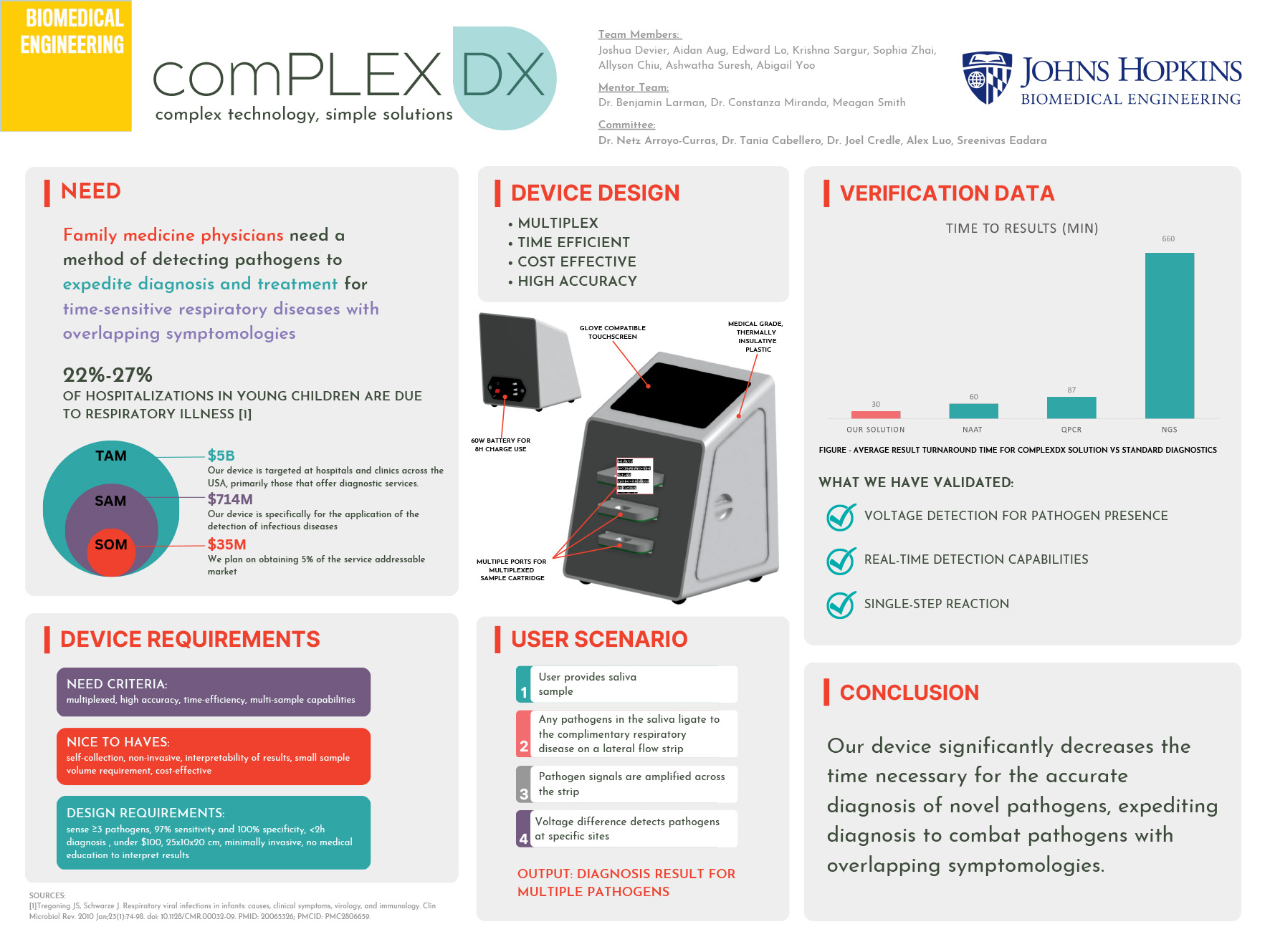comPLEX Dx presents a novel device corroborating novel biochemistry and electronic detectable into a multiplexed lateral flow pathogen sensor for efficient detection of respiratory diseases
Team: comPLEX Dx
- Program: Biomedical Engineering
- Course: BME Undergraduate Design Team
Project Description:
The inability to diagnose respiratory pathogens with overlapping symptomologies quickly and efficiently accounts for 18% of infant mortality annually. In this context, current patient diagnosis journeys could encounter numerous delays, allowing for further symptom development, barriers to testing/results, and delayed treatment (such as antibiotic/antiviral intervention). After interviewing 25+ potential patients, caregivers, physicians, and public health officials, we identified that physicians could profit from a method of detecting pathogens that could lead to an expedited diagnosis and treatment for time-sensitive respiratory diseases with overlapping symptoms.
comPLEX Dx presents a unique multiplexed, lateral flow pathogen sensor comprising novel biochemistry and electronic detection hardware. comPLEX Dx was developed to be used in point-of-care, and allows for the detection of 16+ pathogens in pediatric patients, simultaneously. The technology looks to provide high sensitivity and specificity in differentiating various respiratory bacterial, viral, and fungal infections. Our electronic hardware enables the detection of multiple pathogen signals at PCR-level accuracy and lateral-flow (sub-30 minute) speeds. comPLEX Dx holds promise in differentiating respiratory pathogens to expedite diagnosis and treatment in family medicine clinics across the US. Within the $714M pathogen detection market, comPLEX Dx could be the new paradigm to define the best course of treatment: getting the right diagnosis right now.
Project Photo:
Our device features 3 ports for disposable devices allowing for 30+ simultaneous pathogen detection, each of which is equipped with a heating block to ensure optimal LAMP reactions conditions. The outputs are displayed on a glove compatible screen for easy interpretation and distribution of results. Finally, the unit houses the microcontroller required to detect pathogen amplification as well as a 60W battery for 8h unplugged use. The design is sleek and made of medical grade, thermally insulative plastic for easy integration into clinic environments.




